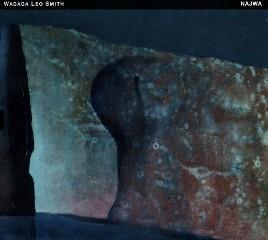Wadada Leo Smith - Najwa (2017)
Wadada Leo Smith - Najwa (2017)

1 Ornette Coleman´s Harmolodic Sonic Hierographic Forms: A Resonance Change In The Millennium 16:22 2 Ohnedaruth John Coltrane: The Master Of Kosmic Music And His Spirituality In A Love Supreme 14:00 3 Najwa 3:31 4 Ronald Shannon Jackson: The Master Of Symphonic Drumming And Multi-Sonic Rhythms, Inscriptions Of A Rare Beauty 11:49 5 The Empress, Lady Day: In A Rainbow Garden, With Yellow-Gold Hot Springs, Surrounded By Exotic Plants And Flowers 10:01 Drums – Pheeroan Aklaff Electric Bass – Bill Laswell Guitar – Brandon Ross, Henry Kaiser, Lamar Smith, Michael Gregory Jackson Trumpet, Composed By [All Compositions] – Wadada Leo Smith
Trumpeter Wadada Leo Smith's introductory liner notes to Najwa begin with Muddy Waters, so we'll begin there, too.
Wadada Leo Smith was born in 1941, in Leland, Mississippi, around the time Alan Lomax showed up down in Clarksdale, Miss., to record—among many others—McKinley Morganfield, aka Muddy Waters. The Lomax field recordings of Waters and his band became the album Down On Stovall's Plantation (Universe Records, 1966). It was an all acoustic affair. Then, shortly after these tunes were recorded, Waters moved to Chicago, discovered the advantages of the electric guitar and plugged in, and lined up a relationship with Chess Records that changed American music.
Smith, with roots in the same soil that birthed the blues—and Muddy Waters—received his first tutelage in music from his stepfather, Alex "Little Bill" Wallace," another seminal electric guitar-playing bluesman. Smith also traveled the Muddy Waters, north-to-south pilgrimage to Chicago, where he convened with the musicians of the avant-garde AACM.
With Najwa, Smith revisits, in a way, his earliest influences, with a guitar album of sorts. As such, the music celebrates free jazz pioneer, Ornette Coleman; and the high priest of jazz saxophone, John Coltrane; the orchestral and "multi-sonic" drummer Ronald Shannon Jackson; love; and lastly the Crown Princess of Jazz Vocalists, Billie Holiday.
Smith's band features four guitarists who paint translucent colors over odd, muscular bass/drums/percussion grooves. It is an airier sound than he goes for with his group Organic—a near-big band conglomeration featuring multiple guitar line-ups. Considering four guitar guys coming at you, the luminescent Najwa is—for the most part—a surprisingly uncluttered sound. The guitars weave ephemeral textures, entwinements of blurry threads, smeared and glowing. Smith's trumpet is a human voice, by turns plaintive, sharp, concise, piercing, joyous, tranquil. Smith, like Miles Davis before him, maintains a consistent horn sound; his voice doesn't change. It's the sounds around him that change.
Smith often goes epic. He opens Najwa with the anthemic, sixteen minute "Ornette Coleman's Harmolodic Sonic Hierographic Forms: A Resonance Change In The Millennium" to get your attention, then helps you find religion with the fourteen minute "Ohnedaruth John Coltrane: The Master Of Kosmic Music And His Spirituality In A Love Supreme." The relatively brief title tune is an ode to love lost, a gorgeous soundtrack to a dream, or a portal to a parallel dimension, before the disc's tribute aspect reemerges with a nod to the late drummer, and sometimes participant in Smith's Golden Quartet, Ronald Shannon Jackson, on the dark-hued and insistently rhythmic "Ronald Shannon Jackson: The Master Of Symphonic Drumming and Multi-Sonic Rhythms, Inscriptions Of Rare Beauty." Smith's love letter to vocalist Billie Holiday closes the set. Titled, in typical Smithian fashion, "The Empress, Lady Day: In a Rainbow Garden, with Yellow-Gold Hot Springs, Surrounded By Exotic Plant And Flowers," it wraps this superb recording up with great beauty and a sacred serenity.
And a nod to the set's bassist, Bill Laswell, for his strong but supple and off kilter quasi-funk undercurrents (and sometimes over-currents), and for his assistance in the additions of post recording tweakings and enhancements—always understated and spot on in their elevations of Wadada Leo Smith's singular sounds and concepts. ---Dan McClenaghan, allaboutjazz.com
Ishmael Wadada Leo Smith jest jedną z najbarwniejszych i najważniejszych postaci improwizowanego jazzu. Ostatnie lata to najpiękniejszy okres w życiu kontrowersyjnego artysty: jest ozdobą najważniejszych festiwalu, realizuje ciekawe projekty oraz nagrywa albumy dla prestiżowych oficyn. Wadada Leo Smith to artysta niezwykle aktywny, współautor sukcesów i wspaniałych nagrań Mariona Browna, Anthony’ego Braxtona, koncertów z Donem Cherrym, Cecil Taylorem, Lesterem Bowiem, Johnem Zornem, Charliem Hadenem, Jack DeJohnette, Billem Laswellem.
W swoim dorobku ma ponad 60 albumów nagranych dla najbardziej liczących się wytwórni. Najnowszy ” Najwa” zrealizował dla fińskiej oficyny TUM Records. Tym razem trębacz przedstawia octet, złożony z samych gwiazd i mentorów nowoczesnego jazzu ( Wadada Leo Smith –trąbka, Michael Gregory Jackson, Henry Kaiser, Brandon Ross i Lamar Smith – gitary, Bill Laswell – elektryczny bas, Pheeroan akLaff – perkusja oraz Adam Rudolph– instrumenty perkusyjne). Muzycy niezwykle konsekwentnie bawią się awangardowym brzmieniem, rozbudowaną i przemyślaną improwizacją, ale nie starają się „udziwniać” samej muzyki. Udział czterech gitarzystów także narzuca określone stylistyczne wolty, ale Wadada Leo Smith lubi takie karkołomne konfiguracje. Jest nie tylko liderem zespołu, ale także kompozytorem wszystkich granych tutaj (z ogromnym zaangażowaniem i emocjami ) utworów ( „ Ornette Coleman´s Harmolodic Sonic Hierographic Forms: A Resonance Change in the Millennium”,” Ohnedaruth John Coltrane: The Master of Kosmic Music and His Spirituality in a Love Supreme”, tytułowa “ Najwa”, “ Ronald Shannon Jackson: The Master of Symphonic Drumming and Multi-Sonic Rhythms, Inscriptions of a Rare Beauty”, “The Empress, Lady Day: In a Rainbow Garden, with Yellow-Gold Hot Springs, Surrounded by Exotic Plants and Flowers”). To znowu rodzaj specyficznych suit, jakie proponuje muzykom kompozytor. Kilkunastominutowe utwory budowane są impresjami i skojarzeniami z muzyką wielkich free-jazzu oraz nowoczesnych, harmolodycznych improwizacji ( Ornette Colleman, John Coltrane, Ronald Shannon Jackson). Jak odległa jest dzisiaj muzyka Wadada Leo Smith’a od harmolidic-jazzu Colemana czy Jackson trudno definitywnie określić. Zdaje się, że rozgrywa się także i teraz w blasku brzmień albumu „Najwa”. Tak dzisiaj tworzy swój jazz Wadada Leo Smith – trębacz i naturszczyk z Missisippi, kreator AACM w Chicago, teraz rezydent słonecznego Los Angeles. Finalista Pulitzer Music Prize. Jazzowy bohater naszych czasów ! ---jazz.pl
download (mp3 @320 kbs):
yandex mediafire ulozto gett bayfiles








